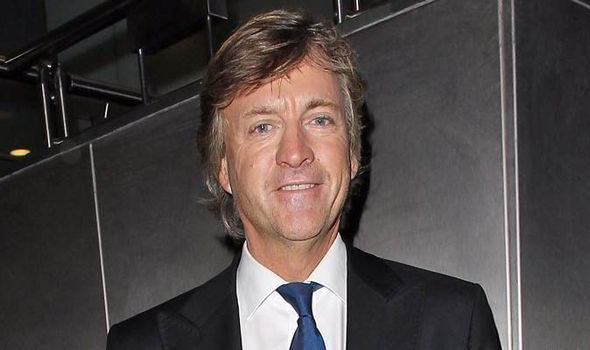GMB’s Richard Madeley Admits Secret Health Battle Has Sparked Cancer Fears
Richard Madeley, the esteemed host of Good Morning Britain, recently opened up about his hidden health challenges, which have raised concerns about the possibility of cancer. The 68-year-old broadcaster’s candid admission reflects his struggles with a lifelong smoking addiction, a habit that has not only impacted his health but also heightened his fears regarding cancer. Madeley’s journey into wellness underscores the importance of confronting our vices and the long-term effects they can have on our lives.
Richard Madeley’s Revelations about Smoking and Health Risks
Richard Madeley candidly shared that his battle with smoking has been a significant factor in his health struggles. With over two decades of smoking in his past, he acknowledges that this habit has markedly increased his risk of developing cancer. This admission is particularly poignant as Madeley lost his father to a smoking-related illness at a mere 49 years of age, an event that has left an indelible mark on him.
Despite his efforts to quit smoking over the years, it was a conversation with John Diamond, the late husband of celebrity chef Nigella Lawson, that proved to be pivotal. Diamond, who bravely fought throat cancer attributed to his smoking, made a profound impression on Madeley. This experience ultimately motivated him to quit smoking altogether at the age of 40, allowing him to break free from the chains of addiction.
The Long-Lasting Impact of Smoking on Health
Even though Madeley successfully quit smoking, he acknowledges that the damage inflicted on his body remains. In a poignant reflection shared in the Daily Express, he stated that while he no longer engages in smoking, the lingering effects on his respiratory system are permanent. He is acutely aware that his risk of developing cancer remains elevated, a sobering reality that many former smokers face. This ongoing health threat serves as a constant reminder of the severe consequences associated with long-term tobacco use.
Madeley has further expressed his support for the NHS’s efforts to provide effective smoking cessation resources, particularly the introduction of Varenicline, a medication he believes could have significantly aided his efforts to quit earlier in life. The NHS recognizes this drug as a potential “game-changer” in curbing smoking addiction, emphasizing its crucial role in public health initiatives aimed at reducing smoking rates across the population.
The Current Landscape of Smoking-Related Health Issues
Recent statistics from the NHS underscore the ongoing public health crisis caused by smoking. In 2023, over 408,000 hospital admissions were linked to smoking-related illnesses, marking a concerning 5% increase from the previous year. This trend highlights the urgent need for continued public education and resources to support individuals seeking to quit smoking.
The NHS Better Health campaign provides a wealth of resources aimed at guiding individuals through their quit-smoking journeys. From support materials to personalized plans, the initiative encourages those struggling with addiction to consider taking tangible steps toward healthier living. Madeley’s story serves as a powerful reminder of the importance of seeking help and support in overcoming addiction and the life-altering benefits of embracing a smoke-free lifestyle.
As more individuals become aware of the health risks associated with smoking, the call for action grows louder. Richard Madeley’s courageous admission about his health fears should inspire others to assess their own habits and consider making changes for the sake of their health and well-being.
In conclusion, Richard Madeley’s honest reflections on his health issues and smoking-related fears underline the critical importance of addressing smoking addiction. Whether through medical support, resources, or personal determination, now is the time to take action. If you or someone you know is struggling with smoking addiction, consider reaching out for help and taking the first steps toward a healthier future.





